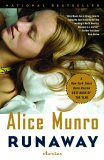Summary | Excerpt | Reading Guide | Reviews | Beyond the Book | Readalikes | Genres & Themes | Author Bio

Critics' Opinion:
Readers' Opinion:
First Published:
Oct 2004, 352 pages
Paperback:
Nov 2005, 352 pages
 Book Reviewed by:
Book Reviewed by:
BookBrowse Review Team
Buy This Book
The house itself was an odd-looking triangular affair that he had built years ago, with some friends, on the foundation of an old wrecked farmhouse. Those people were spoken of as hippies—though Mr. Jamieson must have been a bit old for that, even then, before Mrs. Jamieson’s time. There was a story that they grew marijuana in the woods, sold it, and stored the money in sealed glass jars, which were buried around the property. Clark had heard this from the people he got to know in town. He said it was bullshit.
"Else somebody would have got in and dug it up, before now. Somebody would have found a way to make him tell where it was."
When they read the obituary Carla and Clark learned for the first time that Leon Jamieson had been the recipient of a large prize, five years before his death. A prize for poetry. Nobody had ever mentioned this. It seemed that people could believe in dope money buried in glass jars, but not in money won for writing poetry.
Shortly after this Clark said, "We could’ve made him pay."
Carla knew at once what he was talking about, but she took it as a joke.
"Too late now," she said. "You can’t pay once you’re dead."
"He can’t. She could."
"She’s gone to Greece."
"She’s not going to stay in Greece."
"She didn’t know," said Carla more soberly.
"I didn’t say she did."
"She doesn’t have a clue about it."
"We could fix that."
Carla said, "No. No."
Clark went on as if she had not spoken.
"We could say we’re going to sue. People get money for stuff like that all the time."
"How could you do that? You can’t sue a dead person."
"Threaten to go to the papers. Big-time poet. The papers would eat it up. All we have to do is threaten and she’d cave in."
"You’re just fantasizing," Carla said. "You’re joking."
"No," said Clark. "Actually, I’m not."
Carla said she did not want to talk about it anymore and he said okay.
But they talked about it the next day, and the next and the next. He sometimes got notions like this that were not practicable, which might even be illegal. He talked about them with growing excitement and then—she wasn’t sure why—he dropped them. If the rain had stopped, if this had turned into something like a normal summer, he might have let this idea go the way of the others. But that had not happened, and during the last month he had harped on the scheme as if it was perfectly feasible and serious. The question was how much money to ask for. Too little, and the woman might not take them seriously, she might be inclined to see if they were bluffing. Too much might get her back up and she might become stubborn.
Carla had stopped saying that it was a joke. Instead she told him that it wouldn’t work. She said that for one thing, people expected poets to be that way. So it wouldn’t be worth paying out money to cover it up.
He said that it would work if it was done right. Carla was to break down and tell Mrs. Jamieson the whole story. Then Clark would move in, as if it had all been a surprise to him, he had just found out. He would be outraged, he would talk about telling the world. He would let Mrs. Jamieson be the one who first mentioned money.
"You were injured. You were molested and humiliated and I was injured and humiliated because you are my wife. It’s a question of respect."
Over and over again he talked to her in this way and she tried to deflect him but he insisted.
"Promise," he said. "Promise."
This was because of what she had told him, things she could not now retract or deny.
Sometimes he gets interested in me?
The old guy?
Sometimes he calls me into the room when she’s not there?
Excerpted from Runaway by Alice Munro Copyright © 2004 by Alice Munro. Excerpted by permission of Knopf, a division of Random House, Inc. All rights reserved. No part of this excerpt may be reproduced or reprinted without permission in writing from the publisher.




Censorship, like charity, should begin at home: but unlike charity, it should end there.
Click Here to find out who said this, as well as discovering other famous literary quotes!
Your guide toexceptional books
BookBrowse seeks out and recommends the best in contemporary fiction and nonfiction—books that not only engage and entertain but also deepen our understanding of ourselves and the world around us.